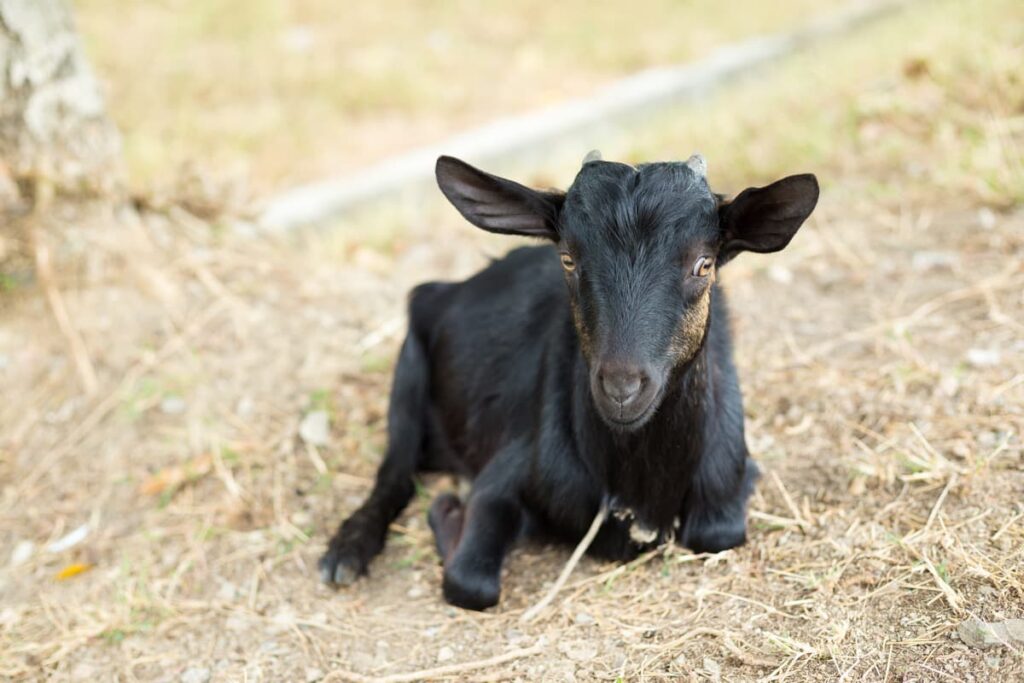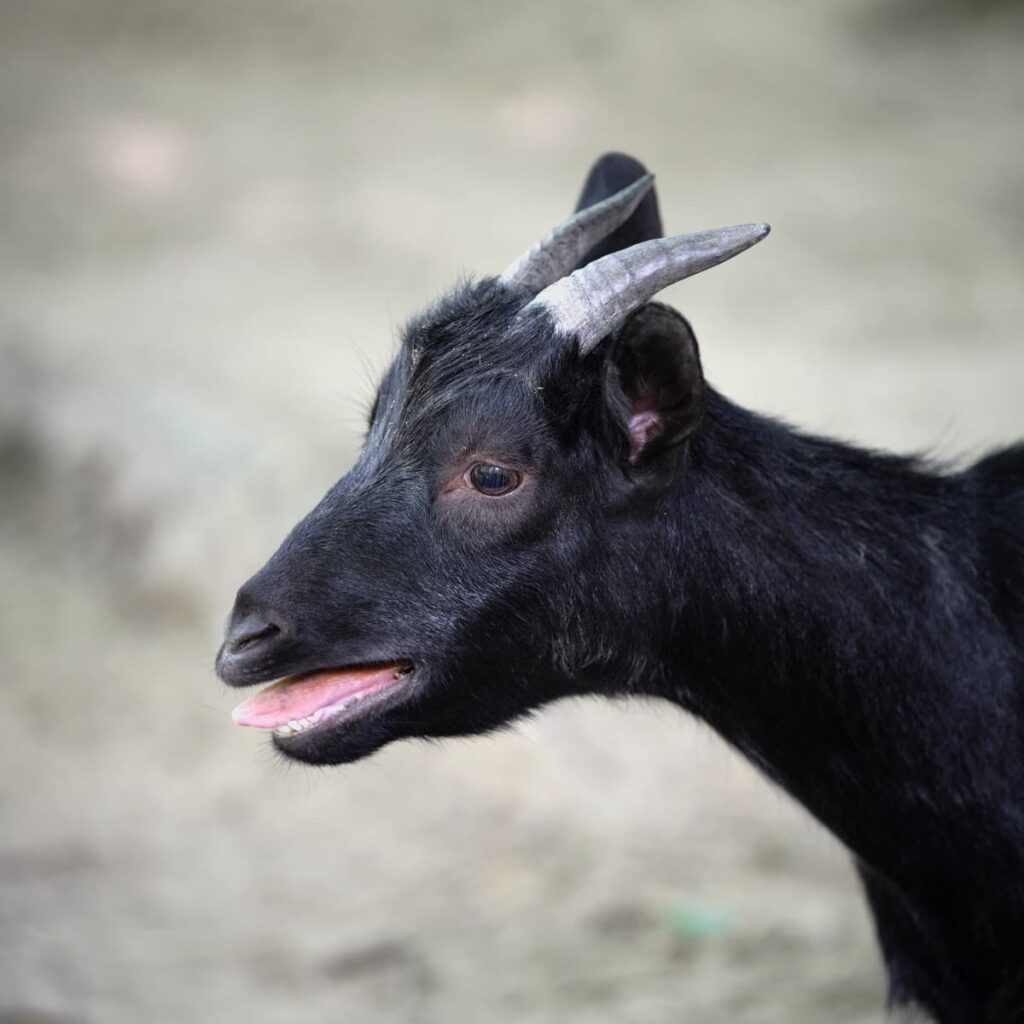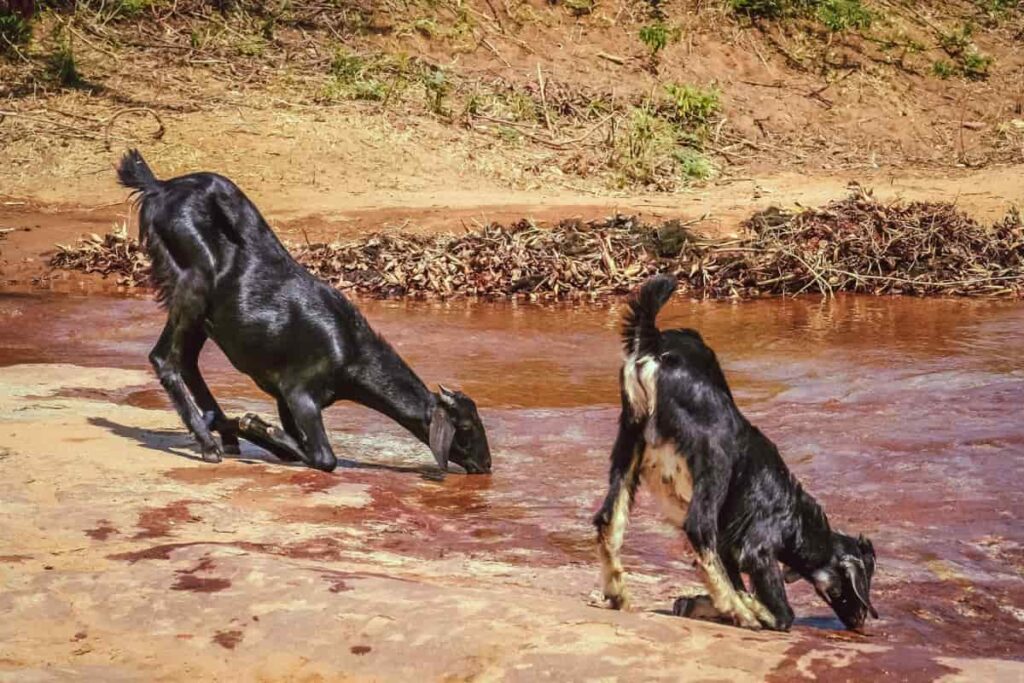Black Bengal goats are highly valued in the livestock industry for their meat, skin quality, and high reproductive rate. This regional breed, found in Bangladesh and eastern India, is highly sought after for its high-quality meat. Black Bengal goat farming can be a lucrative venture.

Black Bengal Goat Farming
What is Black Bengal Goat Farming?
Black Bengal goats are highly valued for their meat and skin, making them an excellent choice for farmers who want to start a profitable business. Black Bengal goats are raised for their high reproductive rate and disease resistance. As such, they are suitable for both small-scale and commercial farming operations. From its high-quality meat and skin to its adaptability and disease resistance, raising Black Bengal goats can be a profitable venture for farmers.
The History of Black Bengal Goat Farming
- The Black Bengal goat has a long history in Bangladesh and eastern India. The breed is known for its high-quality meat, skin, and ability to reproduce quickly. For centuries, farmers have relied on this goat breed for their livelihoods.
- Black Bengal goats were primarily used by small-scale farmers who raised them for household consumption or sold them at local markets. However, with increased demand for meat and leather products in recent years, commercial farming of these goats has become more common. It is crucial in reducing poverty and unemployment rates across Bangladesh’s rural areas.
Housing for Raising Black Bengal Goats
Black Bengal goats are smaller and require less housing than larger breeds, making them ideal for small-scale farming. Providing adequate shelter is essential for the health and well-being of your goats. For Black Bengal goats, around 10 square feet per goat will suffice. If you plan on raising your goats in a stall-fed system, you must provide more space for each animal. Providing at least 20-25 square feet of playing area per goat is recommended since they won’t have access to open grazing areas.
When building a shelter for your Black Bengal goats, ensure it’s well-ventilated with proper drainage systems to prevent waterlogging during the rainy season. It’s also crucial to keep their feeding area clean and dry by regularly removing manure buildup and replacing old bedding materials with fresh ones.
Proper housing management helps reduce animal stress levels, improving overall health outcomes. Providing adequate housing space is important when rearing Black Bengal goats. While these animals are smaller than other meat goat breeds and may require less space initially, it’s still critical to maintain cleanliness and ventilation within their living quarters.
Breeding Black Bengal Goats
It is a relatively easy process. These goats are excellent breeders and can be bred easily without much intervention. Goat breeders generally keep bucks for breeding their does, and most Black Bengal goat farmers prefer natural breeding over artificial breeding systems.
Black Bengal Goats Bodyweight and the Lifespan
- They have a high disease resistance which makes them low-maintenance animals. An adult male Black Bengal goat usually weighs between 25 to 30 kg, while the average female weight ranges from 20 to 25 kg. This makes it easier for farmers to handle and transport these goats than larger meat goat breeds.
- With proper care and management practices such as regular vaccination and deworming, Black Bengal goats can live up to 8-10 years on average. This lifespan provides ample time for farmers who raise these animals for meat production or breeding purposes.
In case you missed it: Goat Breeding and Genetics for Improved Productivity and Disease Resistance

Feeding Tips for Black Bengal Goats
- It is an important aspect of their overall health and growth. These goats are generally herbivores and prefer to graze on fresh grass, leaves, and tree branches. They also require a sufficient amount of clean drinking water every day.
- In addition to grazing, Black Bengal goats can be fed various feeds such as hay, silage, or concentrates. Hay is made from dried grasses or legumes that can provide valuable nutrition for the goat’s diet. Silage is fermented green fodder that provides extra fiber and energy supplements.
- Concentrates like maize bran, wheat bran, or rice polish contain high amounts of protein and minerals, which help improve the weight gain rate among these animals. It should be noted that feeding too much-concentrated food may cause digestive problems in goats.
- Black Bengal goats also require access to clean water at all times. Water helps regulate the body temperature during hot weather conditions and aids digestion.
Is Black Bengal Goat Farming Profitable?
- Black Bengal goat farming can be highly profitable if managed properly. The demand for their meat and skin is high, making it an attractive option for farmers looking to make money.
- Black Bengal goats are hardy animals that adapt well to different climates and environments.
- The initial investment required for starting a Black Bengal goat farm is comparatively low as they require minimal housing space and can feed on local vegetation. However, proper care should be taken to ensure their health and nutrition needs are met to avoid losses.
Black Bengal Goat Diseases and Treatment
- Black Bengal goats are generally hardy and disease-resistant. However, they are prone to diseases affecting their health and productivity.
- One of the most common diseases in Black Bengal goats is pneumonia. This respiratory infection can be caused by various factors such as stress, poor ventilation, or exposure to cold and damp conditions. It can lead to fever, coughing, difficulty breathing, and loss of appetite. Providing a clean and dry shelter with good ventilation for your goats is important to prevent pneumonia.
- Another common issue is diarrhea due to feeding on contaminated food or water sources. Dehydration is a serious concern when dealing with diarrhea in goats, so it’s important to keep them hydrated by providing clean water at all times.
- The next issue in Black Bengal goats may be parasites like worms that cause weight loss, anemia, or even death if left untreated. Regular deworming schedules should be followed using appropriate medications as recommended by veterinarians.
- Foot rot is another problem that affects the hooves of these animals resulting from unsanitary living conditions leading to bacterial infections on the feet, causing swelling and lameness. Proper cleaning practices, including regular trimming of overgrown hooves and good hygiene management practices, will help prevent this condition.
- Proper care and management are crucial in ensuring the health and well-being of your goats.
In case you missed it: Innovative Housing and Shelter Designs for Profitable Goat Farming

Conclusion
Starting a Black Bengal goat farm can be an exciting venture for anyone interested in livestock farming. Black Bengal goat farming has many benefits due to its ability to produce high-quality meat and skin products while providing employment opportunities through small-scale and commercial operations.
- Types of Grass Growing for Goat Farm
- How to Train Goats for Milking: A Beginners Guide
- Goat Milking Practices and Equipment: A Beginner’s Guide
- Goat Farming for Fiber: Producing Mohair and Cashmere
- Maximizing Goat Milk Production: Tips for Dairy Goat Farmers
- Goat Farming as a Family Business: Strategies for Success
- Profitable Kenya Goat Breeds for Commercial Dairy and Meat Business
- Unlock the Secrets of Oberhasli Goat: Discover Raising and Management Practices
- Ultimate Guide to Myotonic Goats: Explore Profile to Raising
interested to start black bengal goat farming